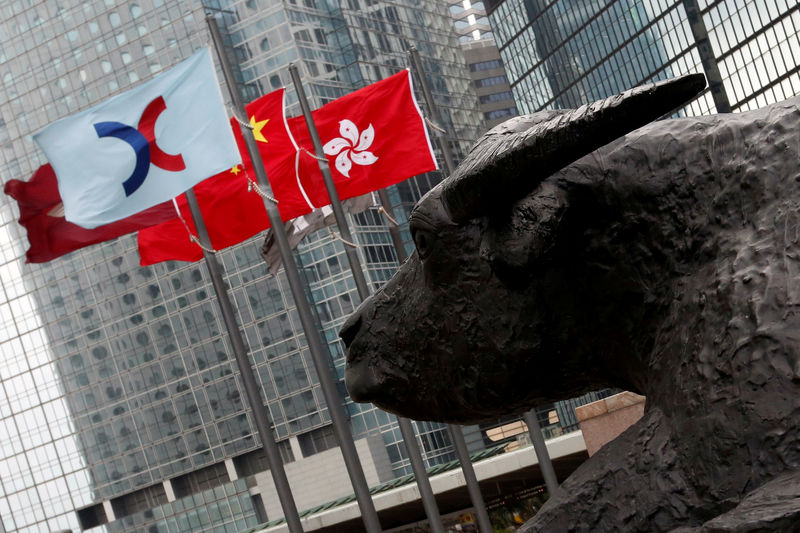By Ambar Warrick
Investing.com -- Most Asian stock markets moved in a flat-to-low range on Thursday as markets weighed the prospect of a less hawkish Federal Reserve against increased economic headwinds in the coming months.
Hong Kong’s Hang Seng index was the sole outperformer for the day, rising 0.7% on strength in heavyweight technology stocks after Tencent Holdings Ltd (HK:0700) logged better-than-expected annual results. The reading helped spur some optimism over a Chinese economic recovery this year.
Hong Kong's Monetary Authority also hiked interest rates by 25 basis points, keeping pace with the Fed.
But Chinese indexes were mixed, with the Shanghai Shenzhen CSI 300 up 0.3%, while the Shanghai Composite lost 0.1%, as major property stocks sank after beleaguered developer China Evergrande Group (HK:3333) outlined a debt restructuring plan, which could set a precedent for the rest of the sector.
Other Asian markets crept lower. India’s Nifty 50 and BSE Sensex 30 indexes fell 0.4% and 0.3%, respectively, while Australia’s ASX 200 shed 0.6%.
Japan’s Nikkei 225 index fell 0.3% ahead of a key consumer inflation reading on Friday, which is largely expected to factor into the Bank of Japan’s stance on monetary policy in the coming months.
Sentiment in Asia was dented by a weak lead-in from Wall Street, as U.S. stock indexes tumbled after the Federal Reserve decision on Wednesday.
The Fed hiked rates as expected and hinted at a potential pause in its rate hike cycle in the wake of a banking crash. But the central bank reiterated its commitment to bringing down inflation, forecasting at least one more hike this year, and said it has no intention of cutting interest rates this year.
While U.S. interest rates are now trending close to their peak in this tightening cycle, analysts warned that further increases, along with rates remaining higher for longer, are likely to apply increased pressure on the economy this year.
The Fed also trimmed its annual GDP outlook.
The prospect of high U.S. interest rates bodes poorly for Asian markets, given that foreign capital flows to the region are expected to remain constrained amid tighter monetary conditions. Fears of an economic slowdown are also expected to keep investors risk-averse, limiting appetite for Asian markets.
Risk-heavy Southeast Asian markets declined on Thursday, with the Philippine Composite and Malaysian benchmark losing 0.6% and 0.4%, respectively.
